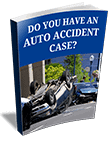Surviving Anxiety And Fear After A Car Crash: Ten Tips
LAFAYETTE, Louisiana. In the aftermath of a car accident, doctors often tend to a patient’s physical wounds. There are bones to be mended, surgeries to be performed, and medicines to be prescribed. However, what often gets overlooked are the hidden emotional wounds that victims can experience after a car accident. These wounds are no less real than the physical ones and can have an immense impact on a victim or family in the aftermath of a crash. What can you do to survive fear and anxiety after a car accident? Here are ten tips:
- Know the symptoms of post-traumatic stress disorder. Anxiety and stress after a car accident are normal. But when this stress interferes with your everyday life, you could be suffering from post-traumatic stress disorder. The symptoms of post-traumatic stress disorder include nightmares, flashbacks, avoidance of situations that remind you of your accident (you don’t want to drive or get in a car or pass the intersection where the crash occurred), isolation, insomnia, and trouble concentrating. If you experience these symptoms several months after your car accident, you may want to seek medical attention. Early intervention for post-traumatic stress disorder can often result in better recoveries for patients.
- If you are caring for an injured loved one, practice self-care. Caring for an injured loved one can be stressful and overwhelming. You might be struggling to pay medical bills, pay rent, and manage the household on your own. It is important to take time to care for yourself—whether this means taking a bath, taking a walk, or taking the evening off to talk to a friend—you need to keep yourself strong to support your loved one.
- Get help. Don’t try to go through the recovery process alone. There are many community resources available for crash victims. If you find yourself struggling to seek a recovery for your loved one’s injuries, pain and suffering, and lost wages, you may want to speak to a qualified car accident lawyer like Laborde Earles: Injury Lawyers in Lafayette, Louisiana.
- Take the time to process the difficult emotions. Trauma-informed approaches, according to the Atlantic, take into account the reality that it can be difficult for us to get work done or focus on daily life until we deal with our feelings first. Rather than pushing away your feelings about the accident, set aside time to process your emotions.
- Anxiety and stress can impact anyone involved in the crash, not just the driver, not just the passenger. If you are a caretaker for an individual impacted by a car accident, you can be affected too.
- Your level of anxiety and stress is not determined by the severity of the crash. While it might seem logical that a more serious accident with more serious injuries might result in more severe anxiety and stress, this is not always the case. Some individuals survive serious crashes and experience little to no anxiety and stress. Some individuals survive minor crashes and experience severe anxiety. Emotional support, financial security, and other factors can play a role in how a person processes a traumatic experience.
- Talk to someone. Talking about the accident can help you heal. But, if you find it difficult to talk, or if you are overwhelmed when you are reminded about the accident, you may want to speak to a professional counselor who can help you work through your emotions is a safe and structured way.
- Give it time. Many people experience stress and anxiety when they get back behind the wheel. It is perfectly normal to need a few weeks, or even a few months, to feel comfortable. According to Geared, it is wise to take this process slowly.
- Take care of the basics. Getting enough sleep, eating three meals a day, and getting regular exercise is important to self-care. If you are not well-rested or are hungry, you may have a harder time processing emotions or balancing daily life with the memories of your accident.
- Speak to a personal injury lawyer. Counseling and medical care following a crash can be expensive. If you were injured due to another person’s negligence or neglect behind the wheel, you may be entitled to seek damages under the law. Visit the car accident attorneys at Laborde Earles: Injury Lawyers in Lafayette, Louisiana today to learn more.

